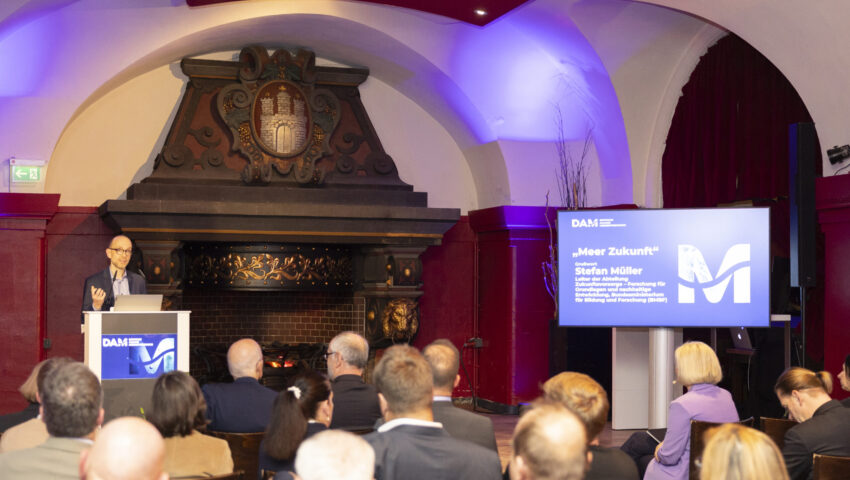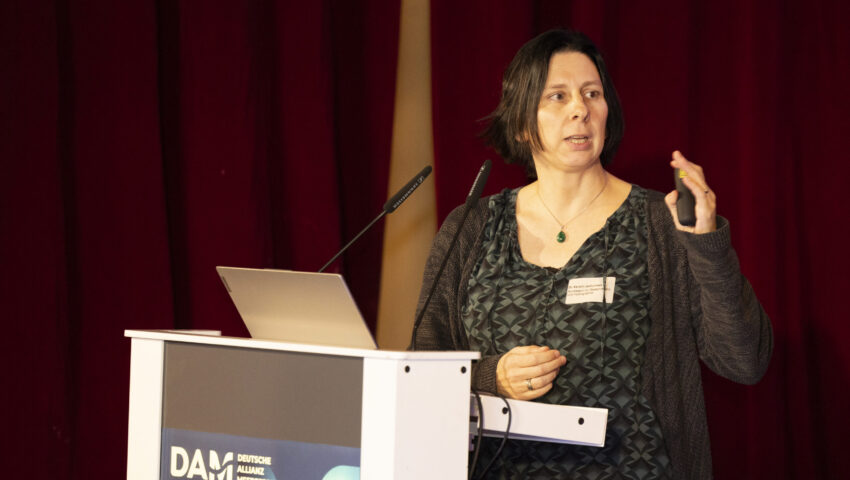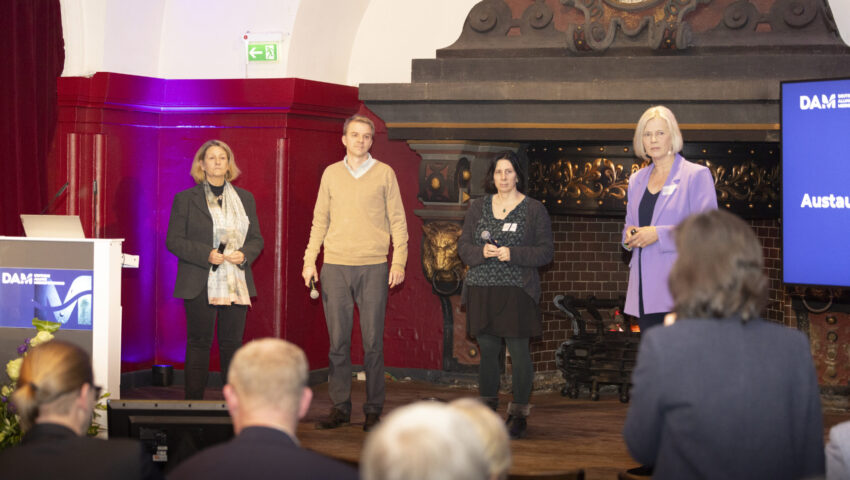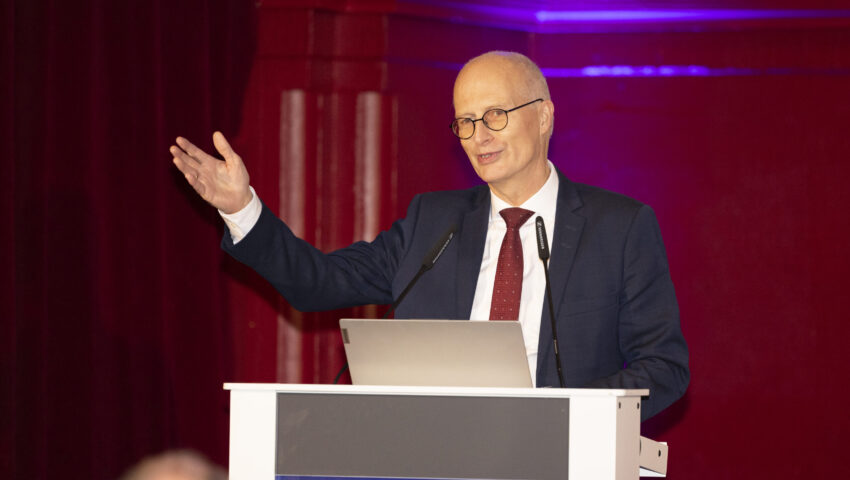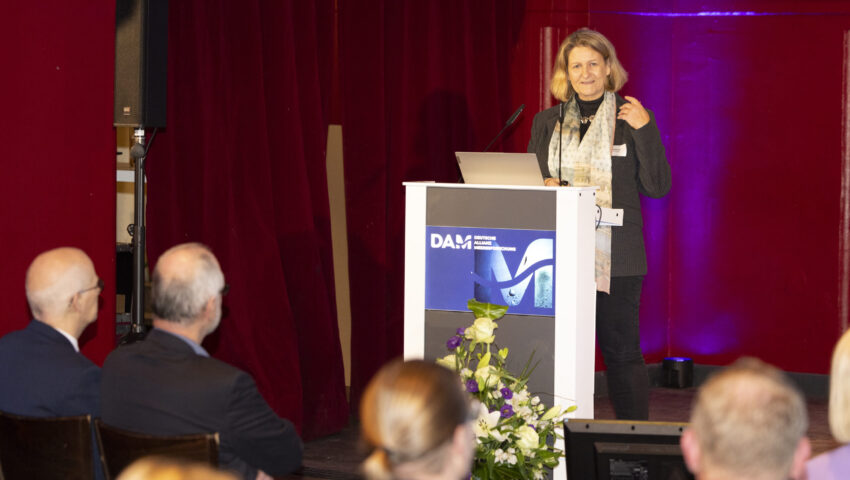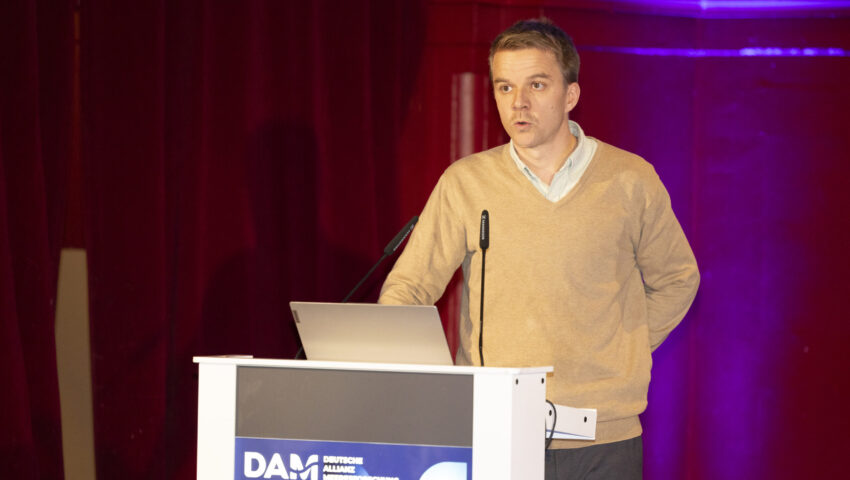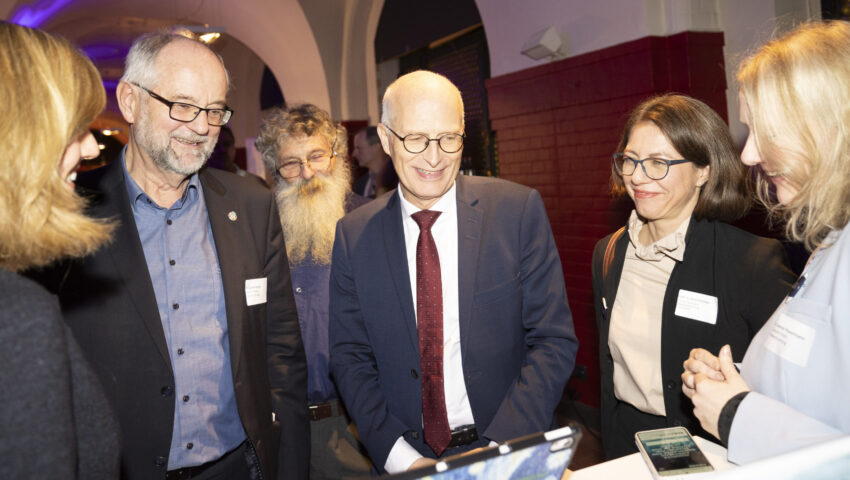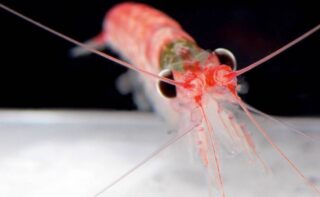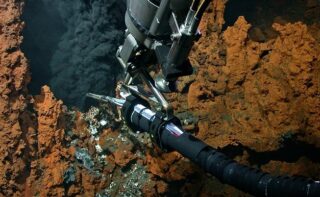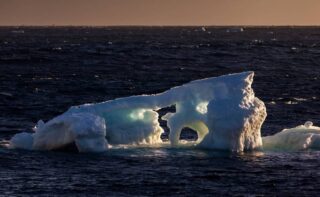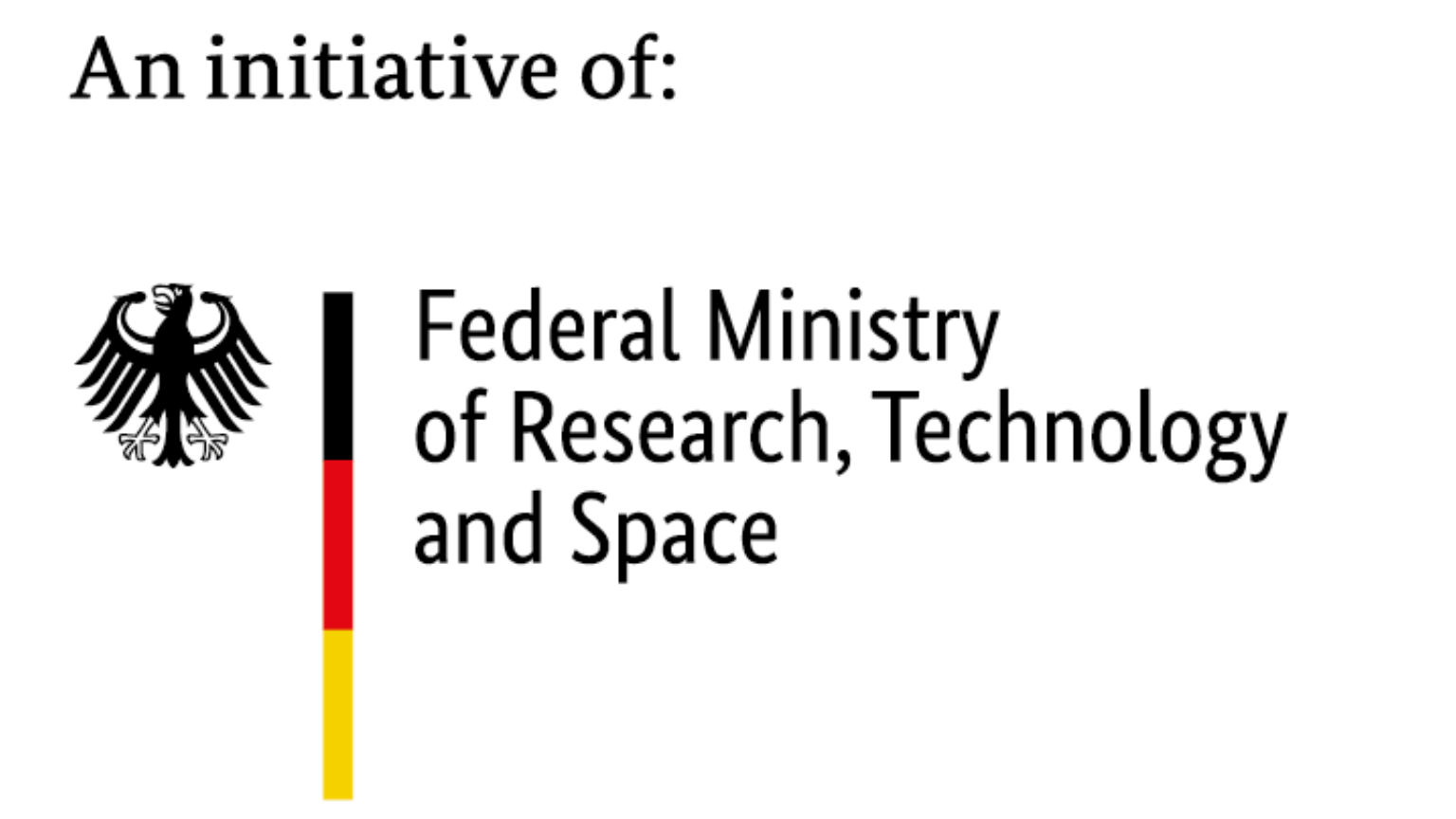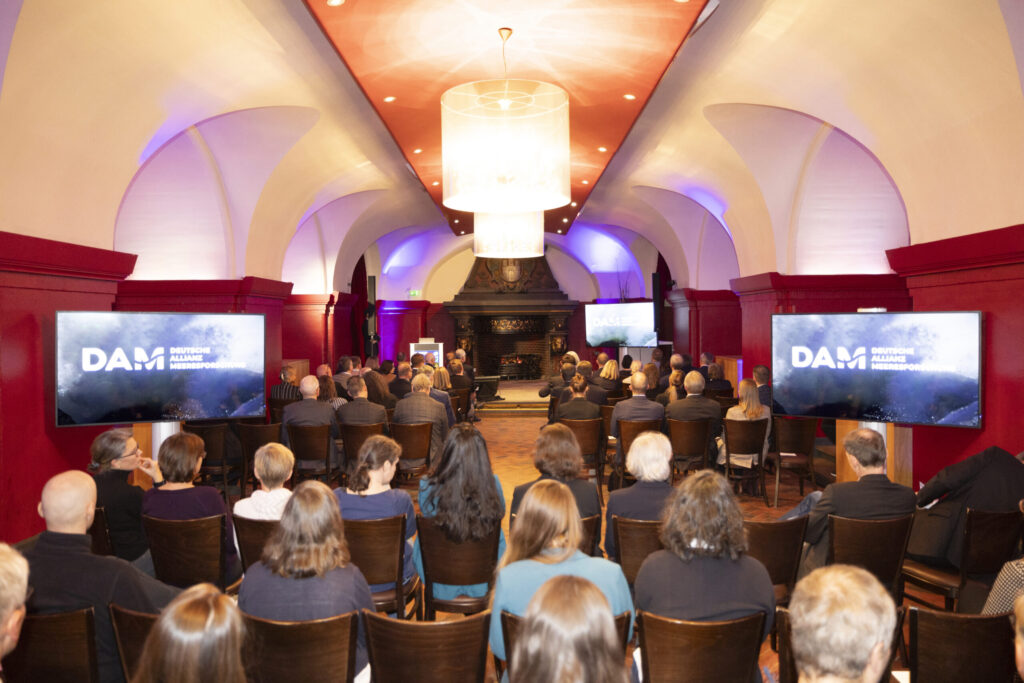
“Meer Zukunft” in Hamburg
DAM completes its series of public presentations in the northern federal states with its fifth parliamentary evening
Dialogue and networking with policymakers: on November 22, 2023, the German Marine Research Alliance (DAM) hosted a parliamentary evening in Hamburg entitled “Meer Zukunft”. With this fifth event of its kind, the DAM is completing its political introduction round in the northern federal states of Germany. The focus was on protection and use of marine areas, coastal protection and nature conservation.
Dr. Joachim Harms, Chairman of the DAM Executive Board, gave the approximately 80 guests from the Hamburg Parliament, state ministries and companies, non-governmental organizations and other stakeholders an insight into the current activities of the DAM and its transdisciplinary research missions. The DAM is currently coordinating two research missions: “Marine Carbon Sinks in Decarbonisation Pathways” (CDRmare), which is dedicated to the absorption and storage of carbon dioxide from the atmosphere, and “Protection and Sustainable Use of Marine Areas” (sustainMare), which investigates concepts and strategies for a sustainable use of marine resources. A third DAM research mission “Pathways to improved risk management in the field of marine extreme events and natural hazards” (mareXtreme) is scheduled to start on January 1, 2024.
Achievements of DAM: networking and transfer
In his welcoming address, Dr. Peter Tschentscher, First Mayor and President of the Senate of the Free and Hanseatic City of Hamburg, emphasized the importance of cooperation between various stakeholders, such as science, business and politics, in order to tackle the pressing issues of climate change. In this context, the DAM is an important alliance that brings together various parties.
Stefan Müller, Head of the Directorate Provision for the Future – Basic and Sustainability Research at the Federal Ministry of Education and Research, also referred to the important coordinating function of DAM, which transfers expertise from science to politics, business and society. This is also important for creating public awareness of marine research and acceptance for climate policy measures. The DAM is an example of successful cooperation between the federal and state governments, which is essential for solving cross-state issues such as dealing with the consequences of climate change.
Scientific impetus on the consequences of climate change for the German coasts and seas
Prof. Dr. Beate Ratter from the University of Hamburg provided an insight into the social and political challenges posed by climate change. In order to sharpen the public’s perception of climate change and its consequences, it is not enough to explain scientific findings in and to make them accessible. Researchers and politicians also need to understand the reality and perspective of different populations in order for knowledge transfer to succeed.
Dr. Kerstin Jochumsen, Head of the Marine Physics and Climate Division at the Federal Maritime and Hydrographic Agency, reported on the increasing risk of storm surges in the German Bight based on the findings of the BMDV expert network, while at the same time the risk of storm tides is decreasing. Dr. Johannes Pein, scientist at the Helmholtz Centre Hereon, gave insights into his research on current developments and forecasts for the tidal Elbe, which predict increasing siltation and oxygen depletion.
Building bridges – How can knowledge transfer succeed?
The focus of the evening was the question of productive knowledge transfer, which should involve stakeholders from business and politics as well as the general public. In exchange with the audience, the speakers stated that there is (still) too little public acceptance of research results from marine and climate research. Without this, however, the challenges of climate change can hardly be overcome. It is therefore important to “build bridges” – one of the main tasks of the DAM’s core area of transfer.
Information on the program of the Parliamentary Evening
Header photo: Sinje Hasheider
Newsletter
Always up to date with the DAM newsletter. (German only)
